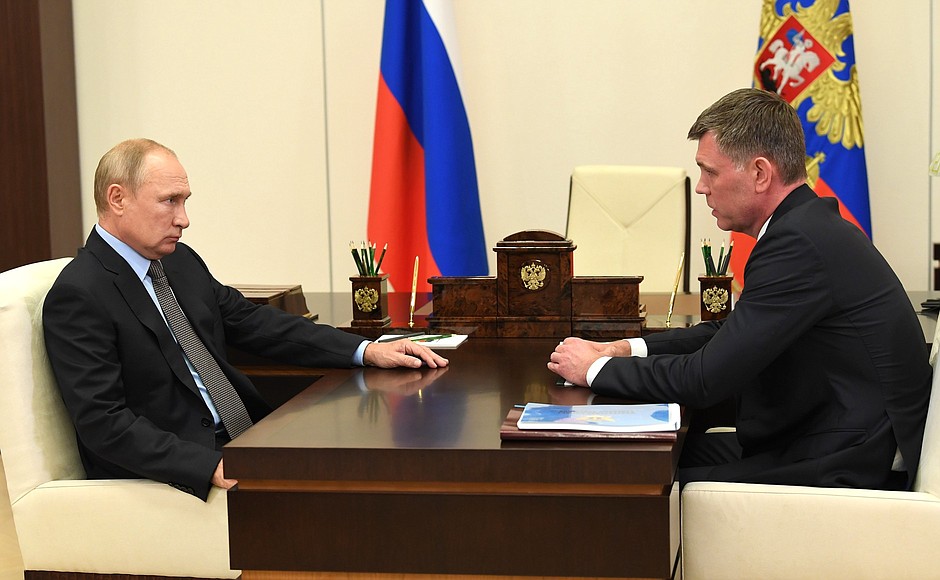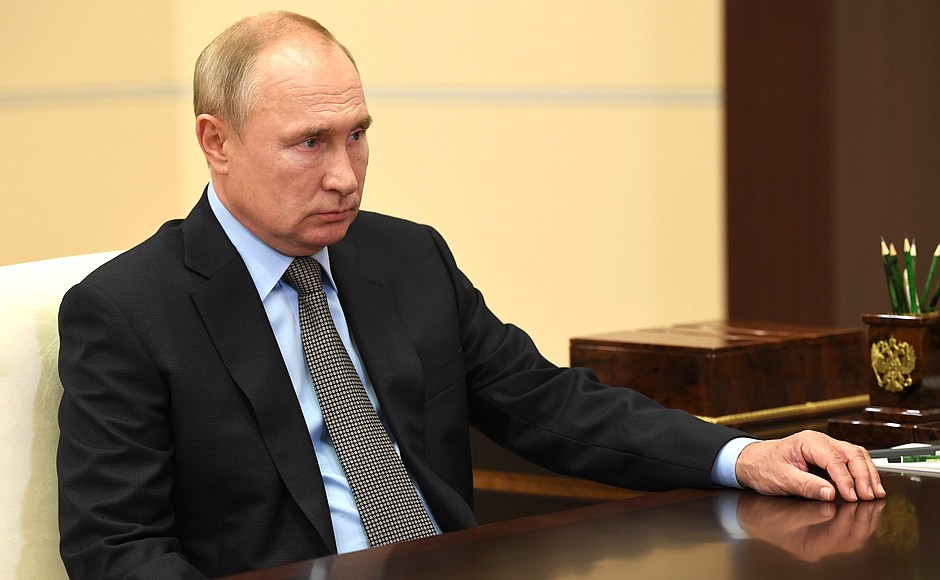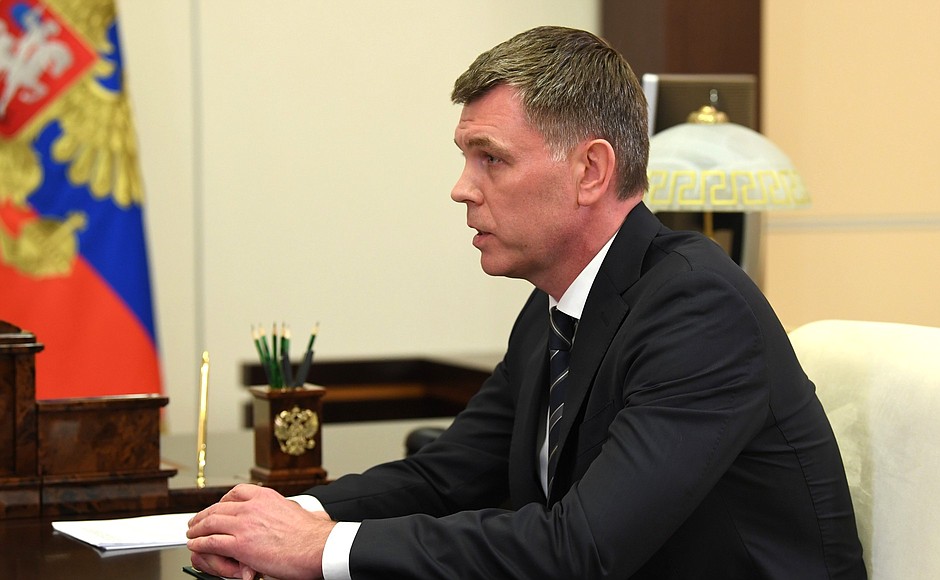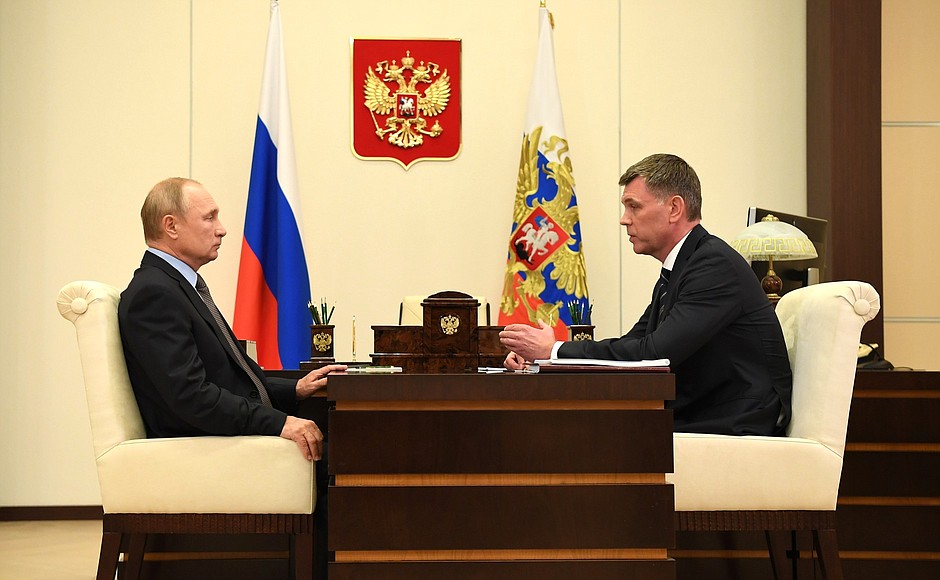
Mr Aristov described the comprehensive reform of the service that has been going on for 18 months in line with the President’s resolution adopted in February 2019. The first stage was legal and regulatory. Amendments to federal laws were drafted and new federal laws issued. All told, this applied to over 200 statutory and regulatory enactments of different levels, from the Federal Constitution Law to departmental acts. Qualification and inspection measures were carried out, in part, professional and psychological selection, including the use of the polygraph, medical examinations and physical fitness assessment. Documents regarding education were verified. Over 81,000 people are employed by the service that covers the entire territory of Russia. In accordance with the President’s resolution, their salaries were increased gradually and have more or less grown 1.9 times since 2016.
The Head of the FBS also reported on supervision of collectors. He said there are several players in the market of getting bad debt from individuals. 321 organisations are FBS-supervised professional collectors. They have been included into the state registry and the service verifies their activities. The second group of “players” that are not yet controlled by the service is the biggest one. It includes 1,606 microfinance companies. The analysis of 80,000 complaints that the service received in 3.5 years has shown that half of all violations were committed by microfinance companies.

According to the President’s relevant instructions issued in May 2019, the Government and the Ministry of Justice are elaborating a corresponding draft law. The service suggests that the microfinance companies and other credit organisations should also be supervised by the FBS as regards the collection of debt.
Vladimir Putin asked Mr Aristov to present the FBS proposals to him and promised to support them. He noted that what people sometimes encounter on behalf of these collectors – both controlled and uncontrolled by the FBS – is out of line, and for this reason they must be put under control by all means.
Dmitry Aristov informed the President that the main task of the service was the enforcement of court judgements and rulings of other bodies. Last year bailiffs worked on 103 million documents, over 90 percent of them involved debt collection from individuals and 10 percent – from legal entities. Therefore, when working to implement court rulings, the bailiffs keep in mind that it is a very delicate sphere for people who have found themselves in a difficult situation. Bailiffs must consider each case to see if the person in question is really insolvent, offering them such legal solutions as instalment repayment of the debt, deferral or suspension of debt payments, provided there are legal grounds for this. It is of course illegal to seize social payments, such as child allowances and pensions, in debt repayment. Citizens are protected by the law, which was signed by the President and came into effect on June 1. Under it, the banking system has introduced so-called secured subaccounts where social payments will be transferred and from which they cannot be seized to pay debt.

Dmitry Aristov also cited figures to explain the service’s operation. Over the past three years, bailiffs have recovered over 2 trillion rubles and collected 725 billion rubles to the consolidated budget. In fact, the service is the third largest source of revenue for the federal budget.
The Federal Bailiff Service Director also updated the President on the service’s operation amid the coronavirus epidemic and measures taken to protect both personnel and citizens, such as portable boxes where people could drop their applications without creating crowds. The number of such applications reached 110,000. A special network of telephone stations received and handled over 2.4 million calls. Money is a highly sensitive sphere, which means that no time must be lost because of possible arrests, the freezing of bank accounts and the enforced sale of property. Dmitry Aristov recalled the law signed by the President in June, which set out the specifics of the enforcement of judgements amid the spread of the coronavirus designed to protect various groups of people.
Another function of the Federal Bailiff Service is to ensure the safety of the judicial system with over 10,500 federal courts and magistrates’ court circuits. Over the course of three years, 1,300,000 banned items were found at court checkpoints. The Service also ensures the safety of court hearings, brings persons who are summoned to court by force (there were 1,800,000 such persons), and assists the police in arresting persons on the federal wanted list: 39,000 have been detained, 3,000 of them for committing major crimes and felonies.
According to the head of the Service, it focuses on fulfilling documents of social importance, above all alimony debt. Unfortunately, the amount of this debt has grown over the course of three years by 18 percent to reach 156 billion rubles. Besides, wage debt is being collected: 47 billion rubles over a period of three years. The Service has one more specific function, which is very important: the search and removal of children as part of court rulings. Over three years, 516 children hidden by their parents were found and transferred mainly to their mothers for upbringing. Dmitry Aristov noted that unfortunately fathers sometimes hid their children very carefully, harming the child above all, of course. The Service also ensures the implementation of decisions on housing for orphans: it has controlled 40,000 rulings over a period of three years.

Dmitry Aristov also listed several more functions of the Federal Bailiff Service, such as implementing rulings on illegal landfills: 3,600 such sites have been cleared over three years and 9,000 unsanctioned buildings dismantled. Another important function is administrative expulsion of foreign citizens and persons without citizenship who violated the laws of Russia. Over three years, 160,000 were deported. Even during the spread of the coronavirus, this function was exercised in cooperation with the Foreign Ministry, the Federal Air Transport Agency and the service’s foreign partners via the Foreign Ministry, mainly the countries of the Commonwealth of Independent States, despite the closed borders. Charter flights removed about 2,600 people from the territory of the Russian Federation during the pandemic.
Special operational matters were also discussed at the meeting.